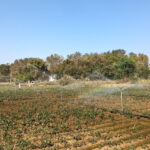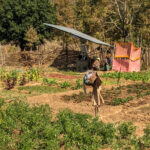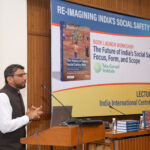Author: Aishwarya Gawali

Building Climate-Resilient Agriculture with Community-Owned Solar Irrigation
The agricultural sector accounts for approximately 14% of India’s total greenhouse gas emissions, with 17.5% contributed by rice-based agricultural systems. Mitigation efforts have therefore prioritized two major themes: reducing the area under water-intensive paddy cultivation and lowering dependency on diesel…

Key Takeaways from a Workshop on Climate-Resilient Agriculture in Chhattisgarh
As climate change advances, India’s rice-and-wheat-heavy agricultural sector is at risk of weakened production because of temperature changes and more frequent extreme weather events, like droughts. In an effort to make Indian agriculture more climate-resilient, the Tata-Cornell Institute for Agriculture…

Diversifying Farming in Chhattisgarh: What We Know About Agriculture in the State
Rice is a cornerstone of Indian diets, where policies linked to the Green Revolution have helped it and wheat achieve dominance in cropping systems. But methane emissions from rice cultivation play a significant role in exacerbating climate change, and it…

Key Takeaways from TCI’s Expert Workshop on India’s Social Safety Nets
As India continues to grow and transform, the effectiveness of its social safety nets will be of the utmost importance for helping those left behind and addressing the country’s chronically high rates of poverty and malnutrition. The Tata-Cornell Institute’s (TCI)…

